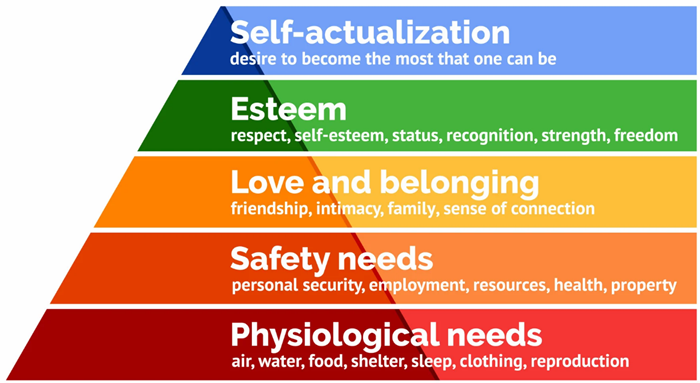Six or seven years ago, an acquaintance of mine embezzled ten thousand dollars. He had uncovered a billing mistake in a major project, and the discovery saved his company hundreds of thousands of dollars. Maybe millions. His boss hogged all the credit and got a big bonus, a huge raise, and was promoted to vice-president. My friend got nothing.

At the time, he rationalized the theft because his boss had cheated him first. But he also left the company quickly, in bitterness, resentment, and fear.
A few months ago, he heard that his old company was undergoing a huge audit. He had already decided to pay the stolen money back. (He was talking with me to figure out a way to do it.) But the audit scared him. He didn’t mind admitting his theft, but he hated having it discovered.
He imagined the humiliation of exposure and thought of nothing else. His mind was consumed with anxious thoughts, and he gasped for air in useless attempts to still his racing heart.
He finally visited a counselor and spilled the beans, detailing every sordid deed of his life, anything he could think of, to wash himself of past shames. He voiced his paralyzing fear of disgrace, and he frantically begged for help.
The therapist asked, “What is your greatest need, right now, at this very moment?” He said, “I desperately need to figure out a way to stop the discovery.” His therapist replied,
No, your greatest need, right now, at this moment, is to take your next breath.
It Was Clever but Was It Right?
At first, I thought the therapist’s advice was brilliant. But then I realized the idea of our greatest necessities are not as clear-cut as the counselor’s simple answer implied. There are all kinds of answers to humanity’s needs, and most of them are misleading and dead wrong.
The counselor’s advice was a textbook answer out of Maslov’s hierarchy of needs.
Maslov said our most basic needs (from bottom to top) are Physical: air, food, water, and shelter. Once they are satisfied, we need Safety, then Belonging, then Esteem, and finally Self-actualization.
But if our greatest need is physical (our next breath), why would Scripture say, “Though He slay me, yet I will praise Him”?
(I think Maslov’s deepest need was to take a deep breath and to pray for spiritual understanding.)
The semi-heretical pastor Robert Schuller once infamously said, “The most important question facing the church is: What are the deepest needs felt by human beings?”
But nobody in their right mind thinks “felt needs” are any indication of importance. A toddler feels he needs more ice cream; a teenager feels she needs a boyfriend; and adults feel we need quartz countertops. On the day we breathe our last breath, none of that stuff will matter.
(I think Schuller’s deepest need was to look past his deepest felt needs.)
What Is Most Necessary?
If you asked anyone during the life of Christ what they needed most, everyone—from the Pharisee to the prostitute—everyone (!) would have said it was to overthrow the Romans. And yet Jesus did nothing about the Romans. He even healed a centurion’s servant, taught everyone to pay Caesar his taxes, and told them to go an extra mile on their forced marches.
When Martha demanded that her sister Mary help with basic chores, Jesus responded, “Only one thing is needed. Mary has chosen the better portion.” What “one thing”? What is that perfect portion? What do we really need most of all, right now?
My life these last four months was filled with a deluge of unexpected demands: my (wonderful!) 96-year-old mother moved in with us for 24/7 rehab, my furnace died, my hot water heater broke down, I got Covid (for the third time) and a month later bronchitis, all along with a host of requests for counsel, speaking, and writing, most of which I was too overwhelmed to handle.
I have a “felt need” for God to get me off this cross. Sure, I’ve seen His miracles, feeding of the thousands, raising the dead, terrific teaching, walking on the water, and claims about divinity. But what is that to me today? I have a felt need for a break, improved health, and more energy. (And maybe a better HVAC system.)
And then I sensed God remind me:
This is eternal Life: to know You, the only true God. (John 17:3)
The mark of an addict is that we confuse what we WANT with want we NEED. I don’t really need more energy or a new HVAC system. Or even my next breath. All I need is Him.
Sam


 What Can Westboro Baptist Teach Us about Grace?
What Can Westboro Baptist Teach Us about Grace?
Good morning, Sam. Good to hear from you again.
Breathing is important; air is good. I am not a psychology, but I hear rumors that Maslov and his hierarchy have been consigned to the dustbin of therapeutic history.
No one ever committed suicide by crucifixion. We are commanded to daily take up the cross. The circumstances, timing, and means of crucifixion are in greater, faithful hands.
Our greatest need is not a what but a Who. Thank you for calling us back to Luke 10.42.
Somewhat related…Morning devotional today talked about not waiting after God has spoken about taking an action. This is my life dilemma. First to make sure it’s God who is speaking and then the enemy uses my fear of getting the timing wrong!
Regardless of what I may ever experience as my most urgent need, I hope it will always be to know, love, and obey the truth / Truth.
Never let the demands of the immediate outweigh the importance of the eternal.
I get it. So good. Thank you Sam!
Great reminder, Sam. I hope your health improves and your mother is doing well.
About a year ago, I wrote in my blog (https://thosewhoweep.blogspot.com/2022/05/a-meaningful-life.html), “I have all these needs, all these desires because God wasn’t content to leave me in my fallen state, a slave to sin and Satan.” I think it was C. S. Lewis who first helped me to see that our felt needs are actually pointers to our real need/longing for “every spiritual blessing” that God freely gives us when we know Him (Ephesians 1:3).
For example, our felt need for unlimited sex is a twisted form of our real need for an intimate relationship with our Creator. God, in His wisdom, allows us to experience those felt needs, not to compel us to seek physical and emotional fulfillment, but to drive us to Him. If we didn’t have those felt needs, many of us would be perfectly content to continue on our merry way without any thought of God. (Note: This is NOT an endorsement of Schuller’s approach.)
I love the way God set it up right from the start: Satan insinuates things into our lives to draw us away from God. God thwarts Satan’s plans by using those same things to draw us nearer to Him.